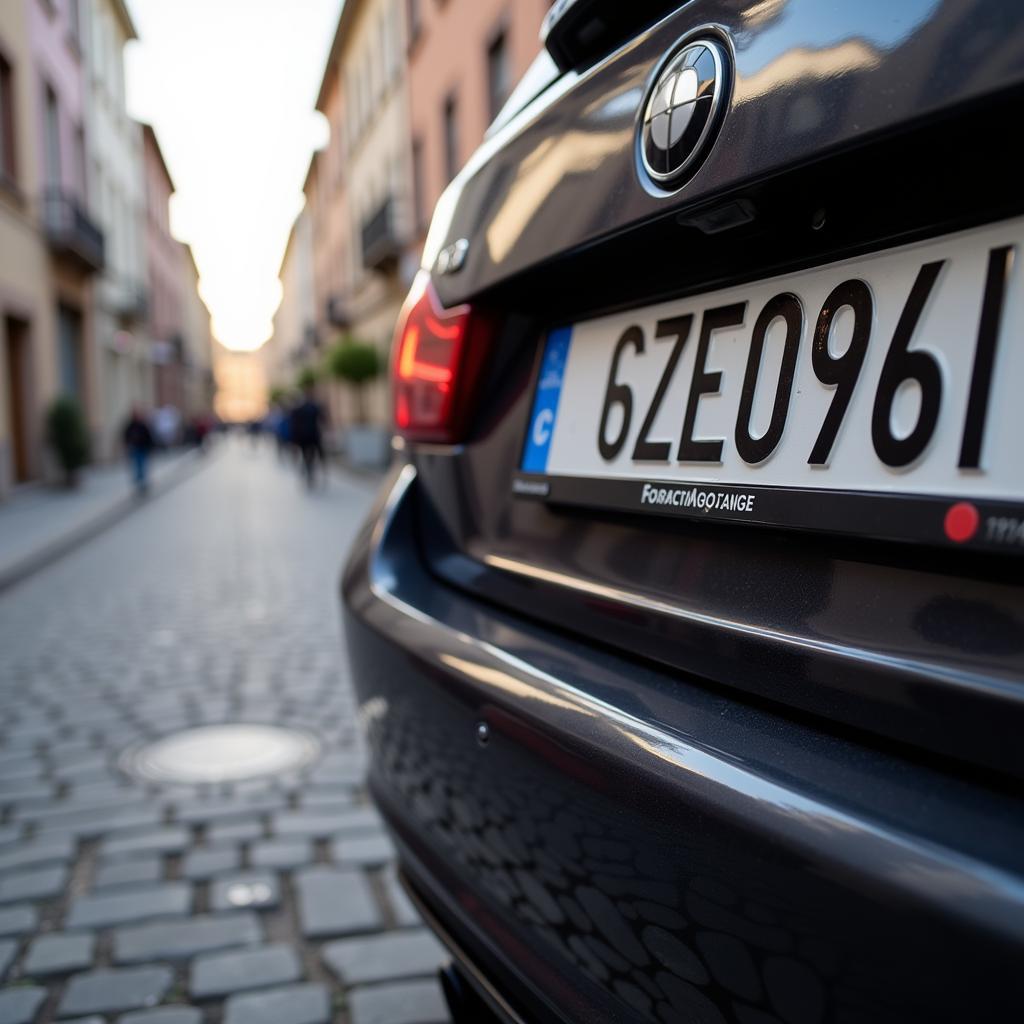Buying Cars for American Service Personnel in Germany: A Comprehensive Guide
Navigating the German car market as an American service member can feel like navigating a foreign land, even if you’re already stationed there. From understanding the paperwork to finding the right vehicle for your needs, this guide is tailored to make “buying cars for American service personnel Germany” a smooth ride.
Understanding Your Privileges
One of the first things to know is that your status grants you certain privileges. As US military personnel stationed in Germany under the SOFA (Status of Forces Agreement), you’re exempt from paying VAT (Value Added Tax), which is a significant 19% savings.
Where to Buy Your Car
You have several options when it comes to buying a car in Germany:
1. On-Base Dealerships:
These are convenient and often offer financing options specifically designed for military personnel. However, their inventory might be limited.
2. German Dealerships:
These offer a wider selection and the opportunity to negotiate prices. Be prepared to communicate in German or have someone who can translate for you.
 Used car lot in Germany featuring a variety of popular European brands.
Used car lot in Germany featuring a variety of popular European brands.
3. Private Sellers:
Buying from a private seller can sometimes offer the lowest prices, but it comes with risks. Ensure you thoroughly inspect the car and its paperwork before purchasing.
Essential Documents
Before you start shopping, ensure you have the following documents:
- Military ID: This verifies your status and exempts you from VAT.
- Orders: Proof of your assignment in Germany.
- Driver’s License: A valid US driver’s license is sufficient for driving in Germany, but you might need an International Driving Permit (IDP) for car rentals or insurance purposes.
- Insurance: You’ll need German car insurance, which you can typically arrange through companies specializing in policies for military personnel.
Choosing the Right Car
Germany is renowned for its high-quality automobiles, but consider your lifestyle and needs:
- Family Size: Station wagon-style vehicles are popular for their practicality, but smaller hatchbacks are ideal for navigating narrow city streets.
- Budget: Set a realistic budget, remembering to factor in insurance, registration, and potential maintenance costs.
- Fuel Efficiency: Fuel prices in Europe tend to be higher, so prioritize fuel-efficient models.
- Manual vs. Automatic Transmission: Most cars in Germany are manual transmission. If you’re not comfortable driving a stick shift, factor in the potentially higher cost of automatic vehicles.
Registration and Insurance
 Close-up of a German license plate on a car parked on a cobblestone street
Close-up of a German license plate on a car parked on a cobblestone street
Once you’ve purchased your car, you’ll need to register it and obtain German license plates. Your on-base legal office or local German authorities can guide you through the process.
Remember to cancel your US insurance policy once your German insurance is active.
Tips for a Smooth Purchase
- Research thoroughly: Familiarize yourself with German car brands, models, and pricing before you start shopping.
- Negotiate: Don’t be afraid to negotiate the price, especially at dealerships.
- Get a pre-purchase inspection: It’s highly recommended to have a mechanic inspect the car for any potential issues before finalizing the purchase.
- Keep copies of everything: Maintain thorough records of all documents related to your car purchase, insurance, and registration.
Buying a car in Germany might seem daunting, but with the right preparation and information, you can navigate the process smoothly and enjoy the freedom and convenience of having your own wheels while stationed abroad.

